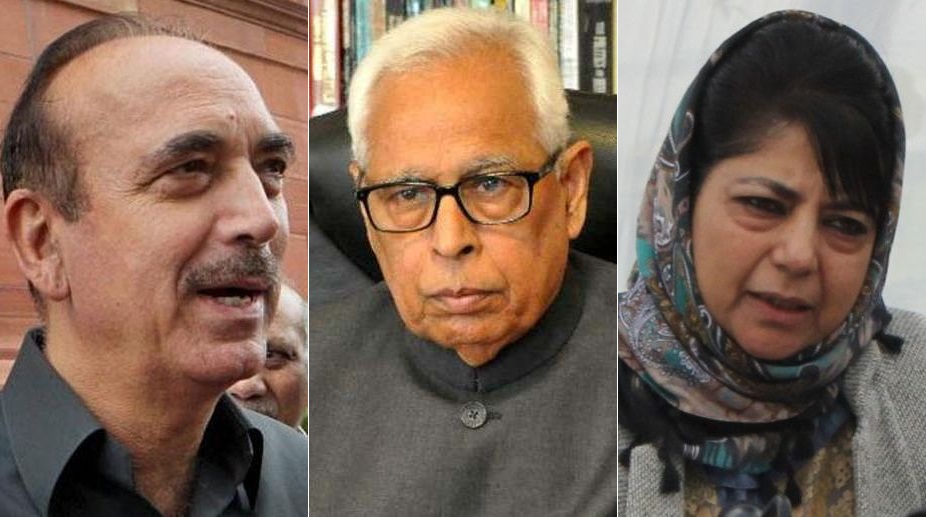A tectonic shift was witnessed in Jammu-Kashmir on Tuesday with the Bharatiya Janata Party (BJP) pulling out of the coalition government in the state. At a press conference held in New Delhi, the BJP took everyone by surprise by ending its alliance with the Peoples Democratic Party (PDP) terming it “untenable”.
Addressing the reporters, BJP general secretary Ram Madhav cited the rise of radicalism in the state which led to the killings of many security force personnel and civilians, including journalist Shujaat Bukhari and Indian Army rifleman Aurangzeb just days before Eid, as the reason behind the decision.
Advertisement
READ | BJP pulls out of alliance with PDP, J-K CM Mehbooba Mufti resigns
Following the withdrawal of the saffron party, PDP chief and Jammu-Kashmir Chief Minister Mehbooba Mufti tendered her resignation. Many in the PDP leaders said they came to know of the development from media reports.
“We can only put our heads together and discuss in the party meeting,” PDP spokesperson Rafi Ahmad Mir said following the announcement of the split.
While PDP leaders are holding a meeting in Srinagar, BJP leaders, including party president Amit Shah, are holding a meeting to discuss future proceedings.
READ | Mehbooba Mufti says ‘muscular security policy’ will not work in J-K
The two parties came together to form the government in early 2015 under the leadership of Mufti Mohammad Sayeed, who served as Chief Minister of the state till his death in January 2016. Following Sayeed’s demise, the BJP extended its support to Mehbooba Mufti for the post of CM in April 2016.
But both the BJP and the PDP have had a tenuous relationship over the years in government. The respective leadership of the parties have disagreed over issues such as Article 370 and 35A, AFSPA, separatists, etc.
READ | J-K alliance split: Opposition slams BJP, PDP says decision a surprise
The BJP has blamed Mufti for the security problems and lack of development in J-K. After breaking the alliance, the party called for Governor’s Rule in the state. In the light of the current development, the tenure of J-K Governor NN Vohra has been extended by three months. He will complete 10 years as Governor of J-K on 25 June.
The big question for now is what will be the political situation in J-K.
The PDP is the single-largest party in the state with 28 seats while the BJP has 25. The magic figure to form a government in the state is 44.
National Conference, the main opposition party led by Omar Abdullah in the J-K Assembly, refused to extend its support to PDP to form a government. Abdullah’s party has 15 seats in the 87-member Assembly.
At a press conference in the evening, Abdullah said he did not win the mandate in the 2014 polls and still did not have the mandate to form a government.
“I told him that National Conference didn’t receive mandate to form govt in 2014 and we don’t have mandate in 2018 also. We haven’t been approached and we aren’t approaching anyone,” he said.
“I have told Governor that since no party has the mandate to form government, he will have to impose Governor’s Rule in the state,” he said, adding that he would not speculate on what led to the breakdown of the alliance.
But even without NC’s 15 seats, PDP just might be able to form a government if every other party and the Independents extend their support.
Here is a breakdown:
Congress: 12 seats
Jammu-Kashmir People’s Conference: 2 seats
Communist Party of India (Marxist): 1 seat
People’s Democratic Front: 1 seat
Independents: 3 seats
The total number of seats hence comes to 19. With the 28 PDP MLAs, the total comes to 47 – just three more than the majority mark.
It is yet to be seen which way the wind turns in J-K.











